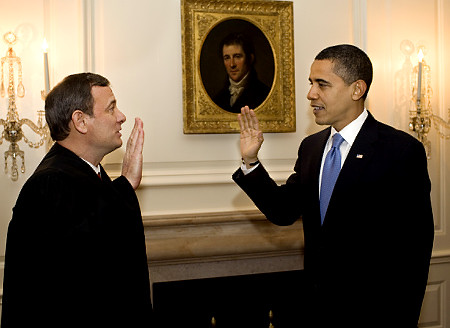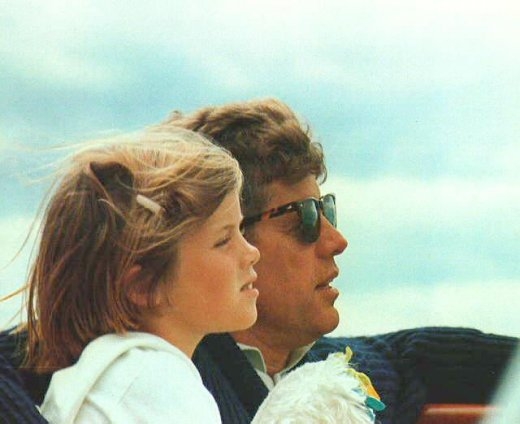
NEW YORK POST: ALBANY — The search to replace Hillary Clinton in the U.S. Senate was thrown into chaos Wednesday night after sources said Caroline Kennedy had withdrawn her name from consideration. The startling news came just as Gov. Paterson was set to choose Clinton’s successor — with Kennedy considered to be the front-runner.
Even as some sources said Kennedy had told Paterson she was pulling out, there was confusion among her closest  confidantes. A family source said cousin Kerry Kennedy spoke with both Paterson and Caroline Kennedy’s political consultant, Josh Isay, and neither was aware she was bowing out. Paterson, the source said, told Kerry Kennedy “he hasn’t heard it and he’s made no decision that would provoke her to leave.” Another member of Kennedy’s political inner circle said Kennedy had not told the governor she was pulling out nor have family members be told anything like that. Aides to Paterson and Kennedy did not return calls for comment. Kennedy could not be found by family members or her inner circle. MORE
confidantes. A family source said cousin Kerry Kennedy spoke with both Paterson and Caroline Kennedy’s political consultant, Josh Isay, and neither was aware she was bowing out. Paterson, the source said, told Kerry Kennedy “he hasn’t heard it and he’s made no decision that would provoke her to leave.” Another member of Kennedy’s political inner circle said Kennedy had not told the governor she was pulling out nor have family members be told anything like that. Aides to Paterson and Kennedy did not return calls for comment. Kennedy could not be found by family members or her inner circle. MORE
NEW YORK DAILY NEWS: Caroline Kennedy tonight withdrew her name from consideration to replace Hillary Clinton in the U.S. Senate after learning that Gov. David Paterson wasn’t going to choose her, The Post has learned. Kennedy’s decision removes the highest-profile name in the ring to step into Clinton’s now-vacant seat, as she 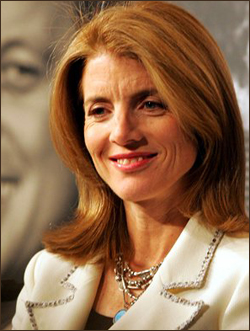 departs after getting confirmed today as President Obama’s Secretary of State. Sources said the reason Paterson had decided not to tap the daughter of John F. Kennedy was her poor performances in media interviews and in in private sessions with various officials. Aides to Kennedy couldn’t be reached for comment. MORE
departs after getting confirmed today as President Obama’s Secretary of State. Sources said the reason Paterson had decided not to tap the daughter of John F. Kennedy was her poor performances in media interviews and in in private sessions with various officials. Aides to Kennedy couldn’t be reached for comment. MORE
CNN: In a one-line statement citing personal reasons, the widely considered front-runner said Thursday she told New York Gov. David Paterson a day earlier that she was no longer interested in the job. “I informed Governor Paterson today that for personal reasons I am withdrawing my name from consideration for the United States Senate.” The statement, provided by Kennedy’s press person Stefan Friedman, was issued after hours of divergent reports Wednesday evening. MORE
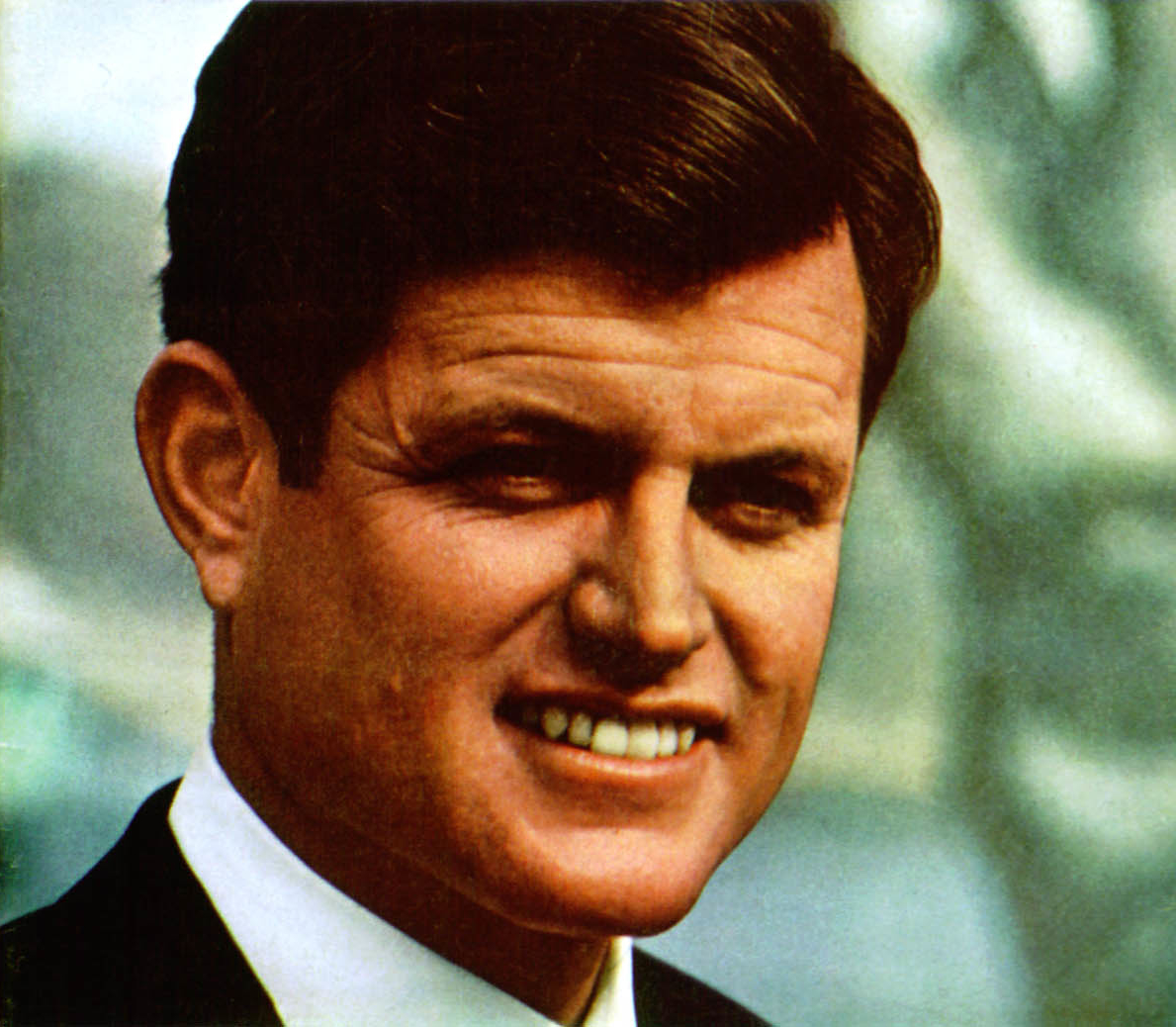 WALL STREET JOURNAL: Sen. Edward M. Kennedy was released from the hospital and doing well Wednesday after suffering a seizure during an inaugural luncheon. Sen. Kennedy’s office confirmed that the senator left Washington Hospital Center, where he stayed overnight for observation, and was resting at home. Sen. Kennedy has been under treatment for a brain tumor since last spring. The 76-year-old Massachusetts Democrat was diagnosed last May with a particularly aggressive type of brain tumor and has been treated with surgery, radiation and chemotherapy. MORE
WALL STREET JOURNAL: Sen. Edward M. Kennedy was released from the hospital and doing well Wednesday after suffering a seizure during an inaugural luncheon. Sen. Kennedy’s office confirmed that the senator left Washington Hospital Center, where he stayed overnight for observation, and was resting at home. Sen. Kennedy has been under treatment for a brain tumor since last spring. The 76-year-old Massachusetts Democrat was diagnosed last May with a particularly aggressive type of brain tumor and has been treated with surgery, radiation and chemotherapy. MORE
BEACH BOYS: Caroline, No
*
RE-HAIL TO CHIEF: Chief Justice Finally Gets It Right
 WASHINGTON POST: In golf, they call it a mulligan. A do-over. There’s no formal name for what President Obama and Chief Justice John G. Roberts Jr. did last night. After flubbing his one role on Inauguration Day — administering the oath of office to Obama — Roberts traveled to the White House to re-administer the oath. Just to make sure. MORE
WASHINGTON POST: In golf, they call it a mulligan. A do-over. There’s no formal name for what President Obama and Chief Justice John G. Roberts Jr. did last night. After flubbing his one role on Inauguration Day — administering the oath of office to Obama — Roberts traveled to the White House to re-administer the oath. Just to make sure. MORE
INQUIRER: Acting to address several campaign promises, Obama met with top generals about speeding the withdrawal from Iraq and gathered his senior economic advisers as he continued to push for a massive government spending bill to create jobs. MORE
REUTERS: War ends in the Gaza Strip, a new U.S. president is sworn in, and suddenly this week there is new talk about talks between sworn enemies Israel and Hamas. But talk may be as far as it goes. Neither the contenders in Israel’s election nor Barack Obama seem to share a view that, with the Islamists blooded but unbowed in Gaza where people now require massive aid, Israel and its allies should end a boycott of Hamas in both Palestinians’ interests and their own. MORE
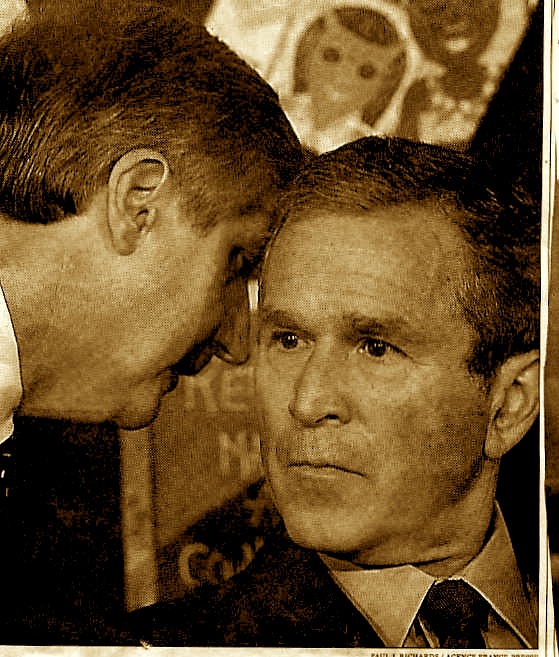 DALLAS MORNING NEWS: President Barack Obama began dismantling the Bush legacy Wednesday, using his first full day to overturn an order that let ex-presidents seal their papers forever. It was one of a number of big and small steps by the new president that, taken together, amounted to a slashing denunciation of his predecessor – from an order halting military tribunals at Guantánamo Bay, Cuba, to one meant to make unclassified records more readily available to the public. “This is the earliest and probably the most emphatic call for more open government from any president,” said Tom Blanton, executive director of the National Security Archive at George Washington University. Bill Clinton took nine months to issue his first directive regarding government records. The Bush administration issued its first directive in October 2001 – a memo by then-Attorney General John Ashcroft that told federal bureaucrats in essence that if they had any reason to withhold records from the public, they should. MORE
DALLAS MORNING NEWS: President Barack Obama began dismantling the Bush legacy Wednesday, using his first full day to overturn an order that let ex-presidents seal their papers forever. It was one of a number of big and small steps by the new president that, taken together, amounted to a slashing denunciation of his predecessor – from an order halting military tribunals at Guantánamo Bay, Cuba, to one meant to make unclassified records more readily available to the public. “This is the earliest and probably the most emphatic call for more open government from any president,” said Tom Blanton, executive director of the National Security Archive at George Washington University. Bill Clinton took nine months to issue his first directive regarding government records. The Bush administration issued its first directive in October 2001 – a memo by then-Attorney General John Ashcroft that told federal bureaucrats in essence that if they had any reason to withhold records from the public, they should. MORE

